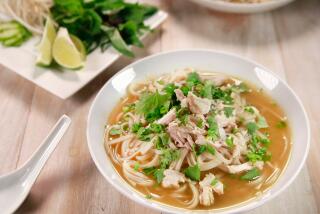Health authorities viewed medications skeptically
- Share via
Though the absence of familiar cough and cold medications has been upsetting for many families, parents may take some comfort in the fact that doctors didn’t consider them all that effective in the first place.
The Centers for Disease Control and Prevention and the U.S. Food and Drug Administration recently determined that the medicines should not be given to children under 4, and the American Academy of Pediatrics says they aren’t effective in children under 6.
Cough and cold medications contain at least one of four types of active ingredients: antitussives, marketed for cough relief; decongestants; expectorants, marketed to clear mucus; and antihistamines, which have been proven to relieve allergy symptoms but not the symptoms of colds. Parents should be sure to avoid combination products — like the recalled Children’s Tylenol Multi-Symptom Cold products — because their overlapping ingredient lists can put kids at risk of overdose.
“They will give kids two different products with the same drug, which can be dangerous,” says Dr. Ian Paul, an associate professor of pediatrics at Penn State College of Medicine.
Paul suggests using vapor rub to ease coughs and nasal congestion, and the American Academy of Pediatrics recommends saline drops followed by a suction bulb to clear up a stuffy nose, as well as placing a cool-mist humidifier in the child’s room.
For kids with a sweet tooth, there’s a treatment they may even enjoy. In a 2007 study, Paul found that a single dose of honey reduced coughing in patients ages 2 to 18 better than the antitussive dextromethorphan or no treatment at all.
Jessica Pauline Ogilvie





